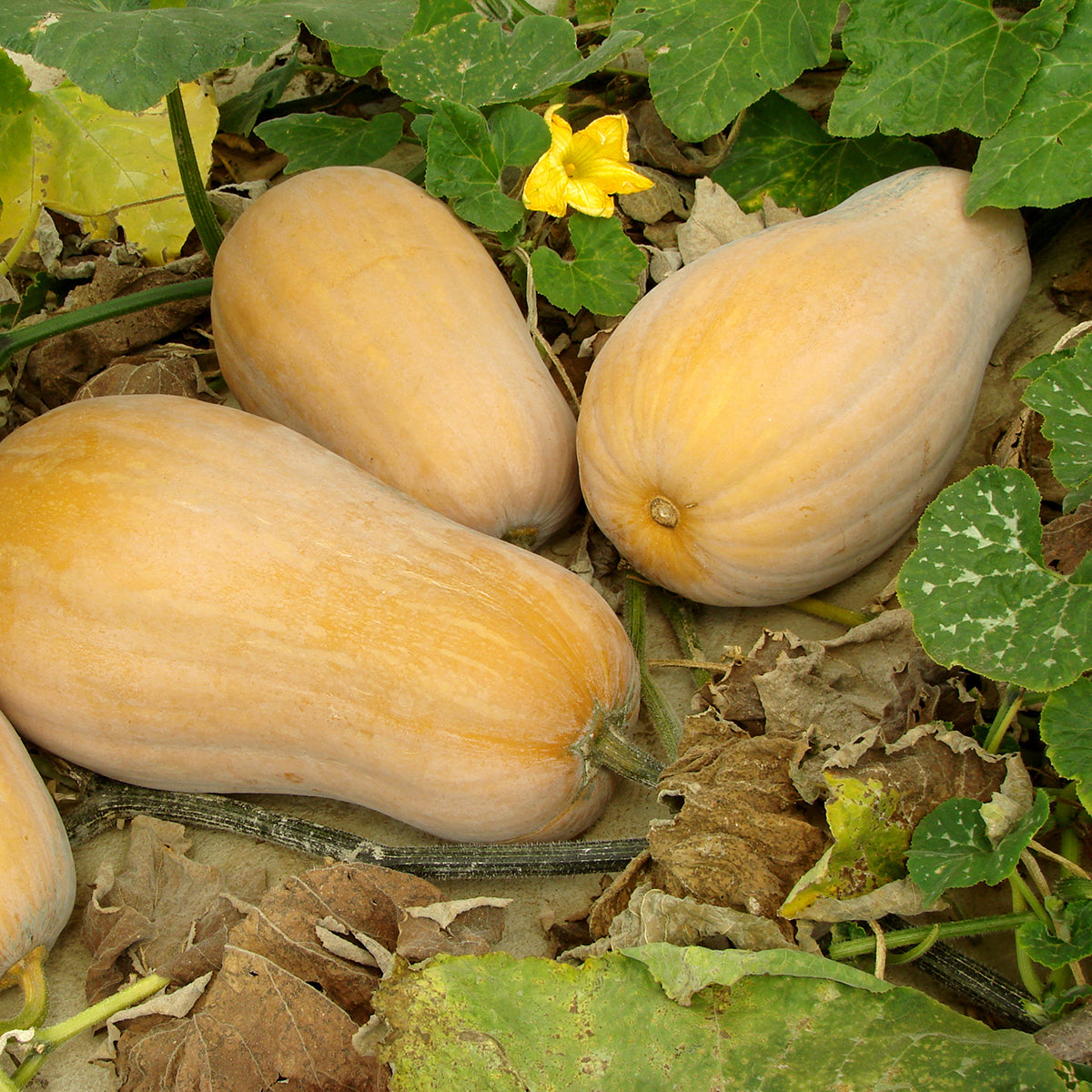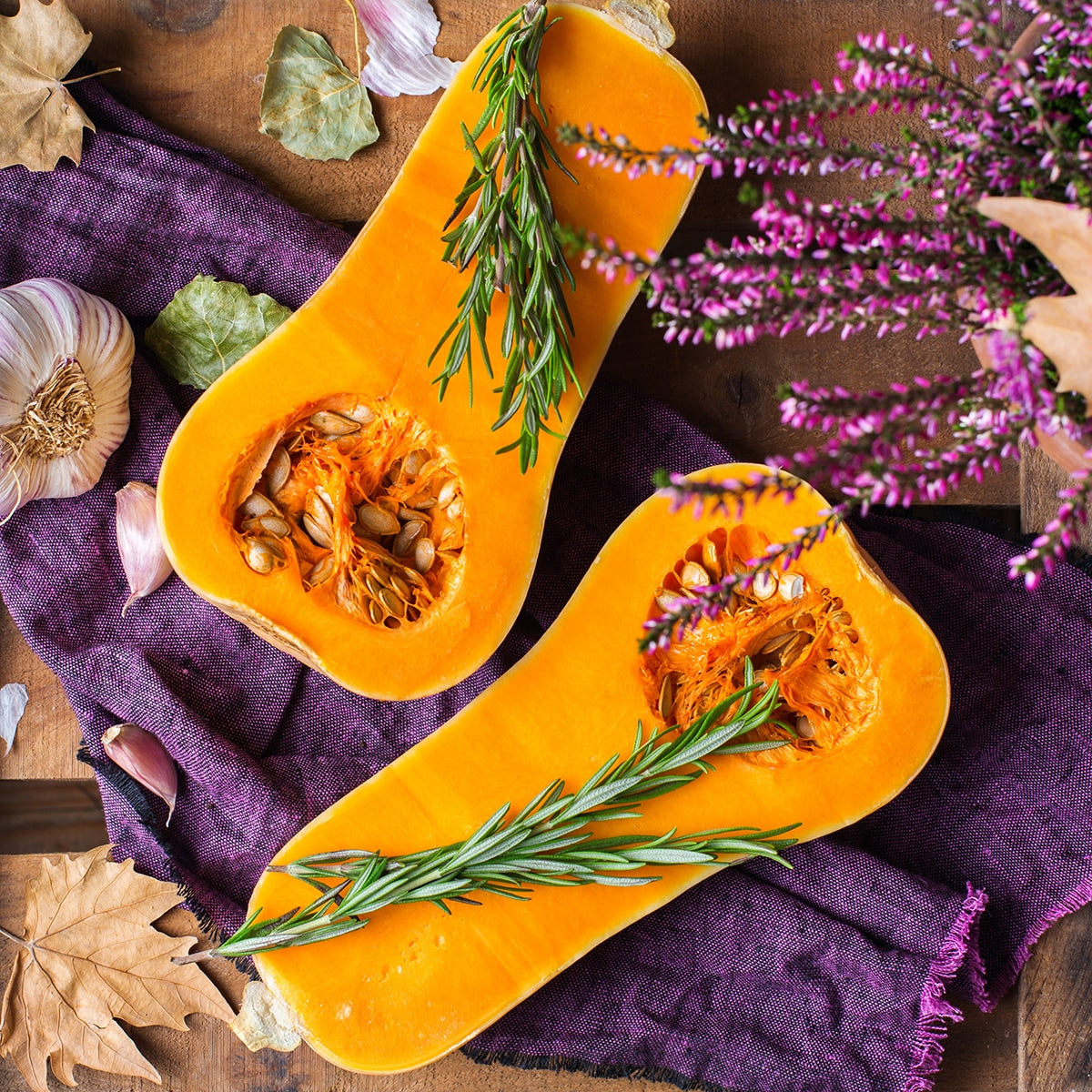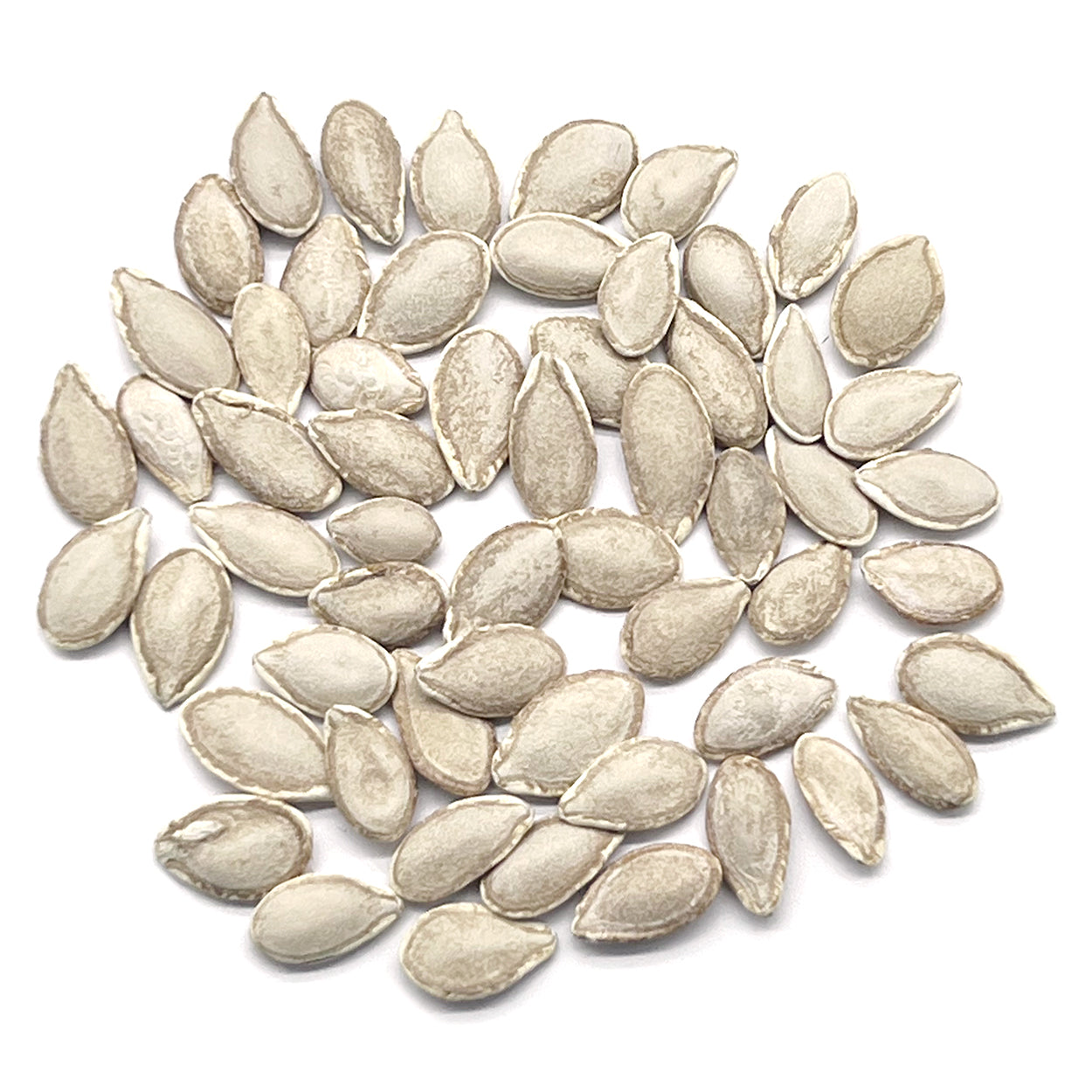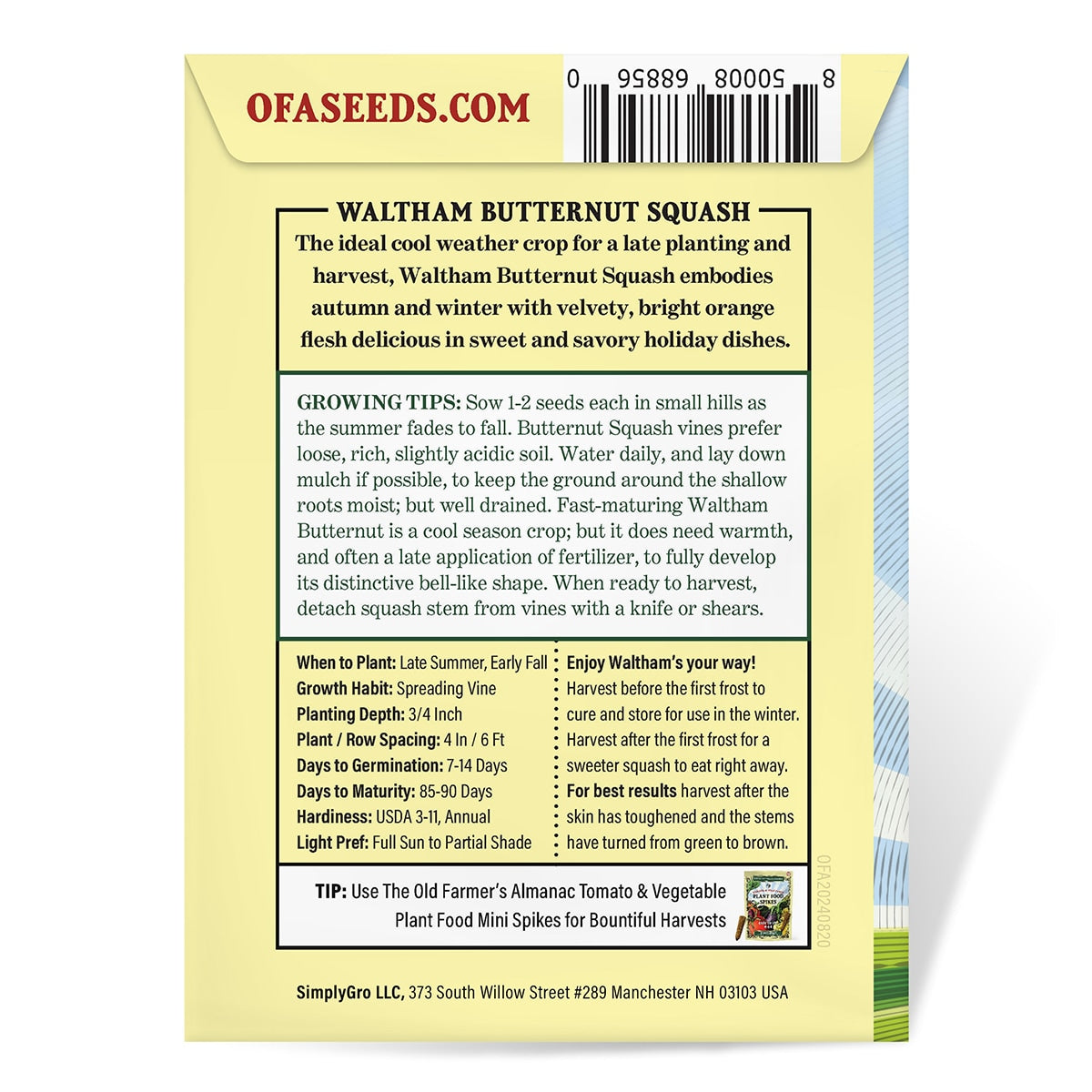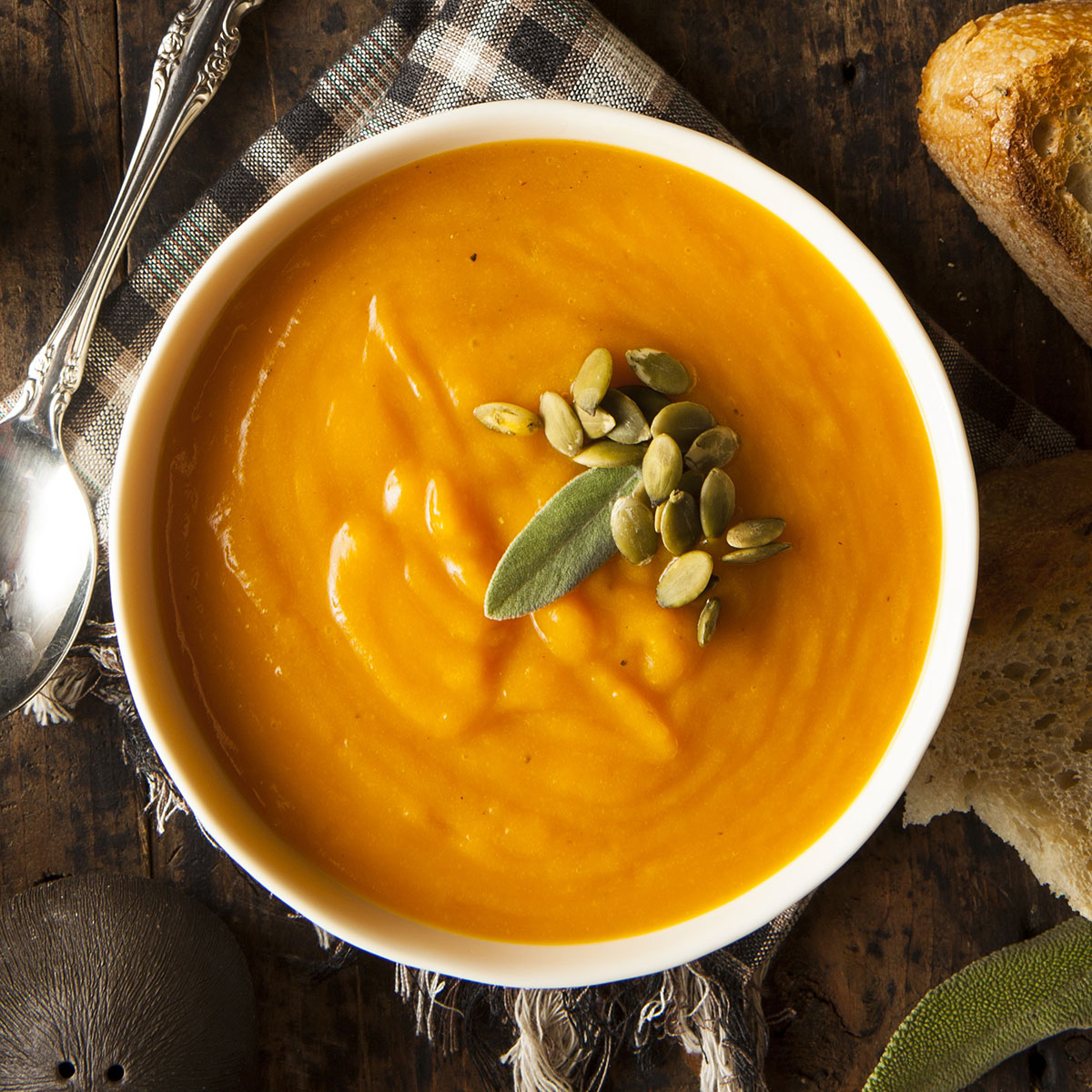Skip to product information

To add to cart, go to the product page and select a purchase option

The Old Farmer's Almanac Heirloom Waltham Butternut Winter Squash Seeds
$5.95
The ideal cool weather crop for a late planting and harvest, Waltham Butternut Squash embodies autumn and winter with velvety, bright orange flesh delicious in sweet and savory holiday dishes. Premium, open pollinated, non-GMO heirloom Waltham Butternut Winter Squash Seeds from The Old Farmer's Almanac have high germination rates and are proudly sourced from American farms.
DESCRIPTION
INSTRUCTIONS & GROWING TIPS
SPECIFICATIONS
- Brand: The Old Farmer's Almanac
- UPC / GTIN: 850008688560
- Country of Origin: United States
- Derived From:





